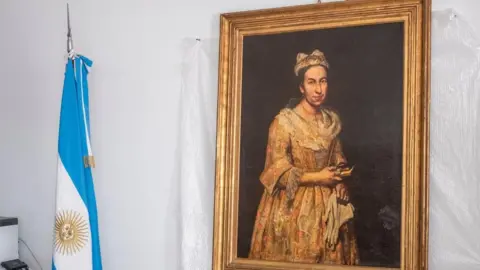South Sudan's First Vice-President Riek Machar has been charged with murder, treason, and crimes against humanity in a move that some fear could reignite the country's civil war.
Justice Minister Joseph Geng Akech stated that the charges against Machar relate to an attack in March by a militia allegedly associated with him. The roads leading to his residence in the capital, Juba, are currently blocked by military tanks and soldiers.
Machar has been under house arrest since March, a period during which he and several allies have faced various accusations. These developments are particularly concerning given South Sudan's history of violence, with previous civil conflicts resulting in approximately 400,000 fatalities.
The 2018 peace deal had significantly calmed tensions between Machar's faction and President Salva Kiir's supporters, but the relationship has strained again, raised amidst ethnic tensions and ongoing sporadic violence.
Seven others have been charged alongside Machar, including key figures in the government. The attack in March, which involved the White Army militia predominantly from Machar's Nuer ethnic group, reportedly led to the deaths of 250 soldiers, including a general.
Justice Minister Akech emphasized the importance of accountability, stating that those who commit atrocities will be met with justice, irrespective of their political stature. He also urged that the ongoing judicial process should remain free from political influence or diplomatic discussions until a verdict is reached.
Meanwhile, major international bodies, including the UN and the African Union, have called for calm in South Sudan, urging political leaders to prioritize stability in the nation.
South Sudan gained independence from Sudan in 2011 but experienced internal conflict within just a few years, underscoring its complex and tumultuous political landscape.

















